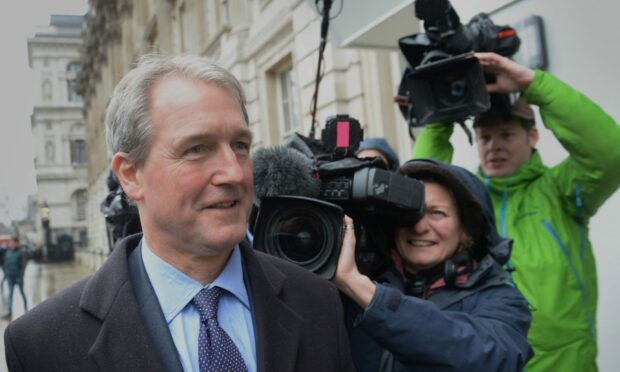Ten years ago, before I stood down from the Scottish Parliament, my wife and I took the famous bus trip that goes to Cape Wrath. It is one of the iconic tourism attractions of northwest Scotland, and we thought we ought to do it before I gave up politics.
On the return journey, I spotted something off to the right in a small lochan. “What is that?” I asked our tour guide. He smiled before he answered. “Something you shouldn’t talk about, Jamie – it’s a duck house.”
The other passengers in the coach roared with laughter. Why? Because this was shortly after the Westminster expenses scandal which exposed publicly funded moats, duck houses and more, and brought a number of political careers to a crashing halt.
Of course, politicians always attract lurid newspaper headlines – it goes with the territory. Some would say it is a great strength of British democracy.
The public will forgive elected representatives for many things, but any whiff of a hand in the till is unforgivable.
We have a free press that can take MPs to task when they deserve it, and that must be a good thing.
Cash for questions
You would have thought that ‘cash for questions’ and elected representatives bunging all manner of stuff on expenses might have taught the British body politic a lesson. But it seems as if we have learnt nothing.
I write, of course, of Owen Paterson.
On the credit side of the balance sheet, he was thought to be a competent Secretary of State during his time in government. He is an affable fellow and well liked within his own party – which may explain what happened next.
Between the years of 2016-2018, Owen received large fees – as much as £100,000 in total – for writing letters to government departments, seeking to influence them in favour of several companies who were paying him the money.
“Not on!” said the House of Commons Standards Committee, chaired by Labour’s Chris Bryant. And with that, they agreed that he should be suspended from Parliament for 30 days. Their wish was to demonstrate to the wider public that no MP is above the law.
But the Conservatives were having nothing of it, and accordingly the former Leader of the House, Andrea Leadsom, narrowly won a vote in the Commons to overturn Paterson’s 30 day sentence.
At the end of the day, governing by sleaze is a one-way ticket out of politics.
The Conservative Father of the House, Sir Peter Bottomley, stood up and said it was wrong. Chris Bryant said it was wrong. There were cries of “shame!” from all sides of the chamber.
But far too many MPs were willing to blithely ignore the lessons of the past – and I for one was utterly astonished.
As a failsafe, my colleague Wendy Chamberlain, the Liberal Democrat Member for North East Fife, bravely stood up on Thursday and proposed a fresh debate on the government hijacking.
‘A lot of politicians still don’t get it’
We will debate the matter again next Monday, except that it will now be a post-resignation debate about the Conservative Party’s extraordinary attempts to overturn due process.
There is only one moral to this story: a lot of politicians still don’t get it.
The public will forgive elected representatives for many things, but any whiff of a hand in the till, particularly when people are struggling to make ends meet, is unforgivable.
At the end of the day, governing by sleaze is a one-way ticket out of politics.
Read more about Owen Paterson
- Douglas Ross criticises UK Government over ‘wrong’ Owen Paterson vote
- How 6 Scottish Conservatives helped save sleaze row MP from suspension
- Labour will stand candidate in by-election to replace Owen Paterson

